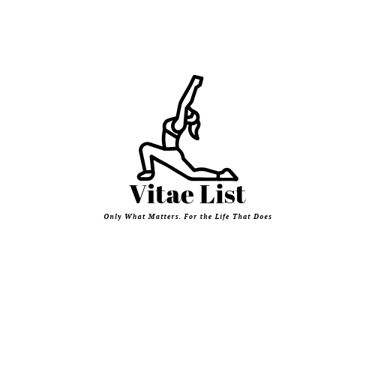Wearable Tech That Actually Supports Your Health Goals
Find out which wearable devices deliver meaningful insights and motivate you toward better fitness and wellness.
FITNESS GEAR
Vitae List
6/10/20252 min read


How to Use a Fitness Tracker to Improve Sleep and Stress
Affiliate Disclaimer: This post contains affiliate links. As an Amazon Associate, we earn from qualifying purchases at no extra cost to you.
Introduction
In today’s busy world, managing sleep quality and stress is more important than ever for overall health. Fortunately, modern fitness trackers offer powerful insights into both, helping you understand your body better and make smarter lifestyle choices. This guide will show you how to leverage your fitness tracker data to improve your sleep patterns and reduce stress effectively.
1. Understanding Sleep Tracking Features
Most fitness trackers monitor your sleep stages: light, deep, and REM sleep. Knowing how much time you spend in each stage helps you identify if you’re getting restorative rest. Look for trackers with accurate heart rate and motion sensors, as these provide more reliable sleep data.
2. Setting Sleep Goals and Routines
Use your tracker’s sleep reports to set realistic sleep targets—typically 7 to 9 hours per night. Combine this with consistent bedtimes, limiting screen time before bed, and creating a calming nighttime routine. Many trackers offer reminders to wind down, which can reinforce healthy habits.
3. Monitoring Stress with Heart Rate Variability (HRV)
HRV measures variations in the time between heartbeats and is a reliable indicator of stress levels. Many fitness trackers provide HRV data or “stress scores” to show how your body responds to daily pressures. Regularly reviewing this data helps you spot stress trends and triggers.
4. Using Guided Breathing and Mindfulness Features
Several fitness trackers include guided breathing exercises designed to lower stress instantly. By following these short sessions, you can activate your body’s relaxation response, improving HRV and mental clarity.
5. Analyzing Activity and Recovery Balance
Your fitness tracker can show how your physical activity impacts your stress and sleep quality. Overtraining or lack of movement can negatively affect both. Use the data to balance workouts with adequate recovery days and stress management techniques.
6. Integrating Tracker Data with Lifestyle Changes
The key to success is acting on your tracker’s insights. Adjust your daily habits based on your sleep and stress data—like improving sleep hygiene, practicing meditation, or adjusting workout intensity—to optimize your well-being.
Conclusion
Fitness trackers are more than just step counters—they’re valuable tools to improve your sleep and manage stress. By understanding and applying the data your device provides, you can develop healthier routines, boost recovery, and enhance overall wellness. Start using your tracker’s full capabilities today for a calmer mind and more restful nights.
Here are some of the best tech pieces we have had the pleasure of using and recommending:
Smart Rings:
Oura Ring Gen 3 - https://amzn.to/43IoOCq
Smart Watch:
Fitbit Versa 4 - https://amzn.to/45FrXph
Heart Rate Monitors:
Polar H10 Heart Rate Monitor - https://amzn.to/3SxAzXm
